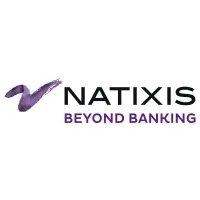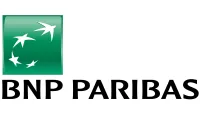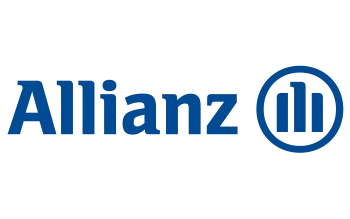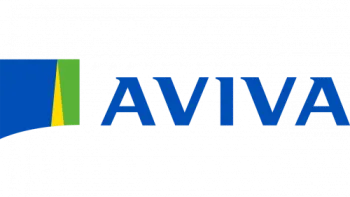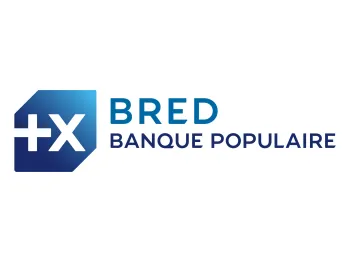
MBA Finance
- October 2026
- French/English
- €13100
- Full-time or work-study program
A recognized degree
The MBA in Finance from ESLSCA Business School Paris is widely recognized for its high academic standing.

Our program is ranked among the best Master's, MS & MBA programs in Internal Auditing and Management Control in France:
Overview of the MBA in Finance
What is the MBA in Finance?
ESLSCA’s MBA in Finance is a five-year higher education program (equivalent to a Master’s degree) designed to train professionals capable of navigating the complex financial challenges faced by today’s businesses.
It is aimed at individuals seeking to develop advanced financial expertise while incorporating ethical and sustainable practices into their professional approach. The program’s objective is to prepare responsible managers who not only master the technical tools of finance, but are also attuned to major industry developments — particularly in the areas of sustainability, blockchain, and digital innovation.
The curriculum covers a broad range of topics including financial institutions, financial products, funding strategies, and capital markets. Students acquire key skills in financial decision-making, investment and acquisition evaluation, cash management, risk management, and capital raising.
This degree program spans two years, totaling 1,029 hours of instruction (469 hours in Year 1 and 560 hours in Year 2), and leads to a Level 7 RNCP-certified qualification (equivalent to a Master’s level diploma in France). In the second year, students choose from four specialization tracks: Audit & Management Control, Financial Engineering, Sustainable Finance, or Quantitative Trading.
Who is this program for?
The MBA Finance is designed for a wide range of profiles:
-

Bachelor’s graduates (3 years of higher education)
in finance, management, economics, or business, looking to specialize and gain recognized expertise in finance.
-

Professionals
with a few years of experience, seeking to advance their careers or transition into financial management roles.
-

International candidates
interested in building a global career, thanks to the program’s bilingual format and strong focus on international business.
-

VAP candidates
with significant professional experience in finance, looking to validate their skills through a recognized certification.
Program Highlights
- Ranked among the Best Master's Programs: Recognized by Meilleurs Masters 2025 in Audit & Management Control and Financial Engineering
- 4 advanced specializations: Audit & Management Control, Sustainable Finance, Quantitative Trading, and Financial Engineering
- State-recognized degree: Official accreditation ensuring the program’s academic quality
- Work-study format available: Tuition-free, salaried training for optimal professional integration
- Bilingual instruction in French and English: A strong gateway to international career opportunities
- Paris campus: Located in the heart of Paris, the leading financial center in Europe
- Over 70 years of expertise: Backed by ESLSCA Business School’s long-standing experience in business education
- Global alumni network: 15000+ graduates in the international finance industry
- Fast-Track option : An intensive 6-month pathway for accelerated entry into the job market
Why choose the MBA Finance at ESLSCA?
ESLSCA Business School Paris stands out for its academic excellence and close ties with the corporate world. Choosing the MBA Finance at ESLSCA means enrolling in a specialized program that combines theoretical rigor with real-world application, offered by a business school with over 70 years of recognition.
Located in Paris, at the heart of France’s financial ecosystem, the campus offers direct access to major banks, audit firms, and asset management companies. This strategic location facilitates internships, work-study opportunities, and smooth entry into the job market.
The program blends theory and practice through interactive courses, case studies, expert-led seminars, and hands-on projects. Key technological topics, such as digitalization and blockchain, are fully integrated into the curriculum.
With bilingual instruction and partnerships with foreign institutions, students gain exposure to global finance and are well-prepared to pursue international careers in major financial hubs.
Throughout the program, students receive individual guidance: coaching sessions, career advice, and privileged access to a network of over 15,000 alumni working in top financial institutions.

Key Figures
MBA Finance Program 2026/2027
Teaching methods :
On-campus: 90% | Online: 10%
Lectures: 65% | Workshops and practical sessions: 35%
Total hours: 1,029 hours of training
MBA 1 lays the core foundation in finance. It covers all essential fundamentals through six comprehensive modules:
Module 1 : Fundamentals of Finance
- Financial Management
- Advanced Accounting
- Business Valuation
Module 2 : Financial Markets and Risk Management
- Banking, Financial Intermediation, Financial Markets
- Portfolio Management
- International Finance
- Risk Management
- Derivatives
Module 3 : Business and Growth Strategy
- Corporate Governance and Strategy
- Finance+ Consulting Project
- Economic Intelligence
Module 4 : Quantitative Methods for Finance
- Econometrics
- VBA and Python Programming
Module 5 : Audit and Ethical Practices
- Sustainable Development / CSR
- Corporate Law
- Audit and Financial Accounting Systems
- Corporate Taxation
- International Financial Reporting Standards (IFRS)
Module 6 : Professional Skills Development
- Conferences and Site Visits
- TOEIC Preparation
- Business English Oral Skills
- Skills Passport
2-month internship - 44 working days for full-time students
This track trains experts capable of working in both audit and management control — two essential and complementary functions driving organizational performance.
The program delivers practical skills in auditing methods, performance management, financial strategy, management, and information systems.
Graduates gain strong analytical skills to work in audit firms or corporate finance departments.
Module 1 : Core finance essentials
- Mergers and acquisitions
- Cash management
- Financial fiagnosis
- Investment and financing decisions
Module 2 : Financial markets and risk management
- Fundraising and crowdfunding
- Enterprise risk management
Module 3 : Corporate strategy and development
- Management control
- Financial statement consolidation
- Project management
- Performance monitoring and CSR
Module 4 : Quantitative methods for finance
- Information systems architecture and security
- Data analysis
Module 5 : Audit and ethical practices
- Corporate criminal law
- Audit missions
- International auditing standards
- Financial and non-financial audits
- Advanced taxation
Research thesis
4-month internship – equivalent to 88 days in-company for full-time students
This track prepares experts in responsible finance, capable of integrating sustainability into financial practices. Graduates are prepared for careers in audit, consulting, banking, or insurance, with a strong grasp of ethical standards and digital transformation.
Module 1 : Finance & Economics Fundamentals Related to Sustainability
- Green finance
- Liquidity management
- Sustainable financial instruments
- Corporate sustainability reporting directive
- Financial and non-financial audits
Module 2 : Anticipating and managing economic and ESG risks
- Corporate criminal law
- Enterprise sustainable risk management
- Project management
Module 3 : Managing financial and non-financial performance
- Financial diagnosis
- Investment and financing decisions
- Performance monitoring and CSR
- Sustainable finance field project
Module 4 : Adapting tools to sustainability contexts
- VBA programming
- Socio-environmental accounting
- Sustainable development economics
- Advanced economics
- Sustainable blockchain and fintech
Research thesis
4-month internship – equivalent to 88 days in-company for full-time students
This track prepares students for careers in advanced trading, asset management, and financial risk management.
The program develops skills in fundamental and technical analysis, complex financial products, and the design of investment and hedging strategies.
Students gain a strong command of quantitative and digital tools essential for working in trading rooms, hedge funds, or specialized financial institutions.
Module 1 : Financial risk modeling and market forecasting
- Machine learning with Python
- Time series econometrics with R
- SQL data analysis
- Modeling of extreme financial risks
Module 2 : Asset valuation and market decision-making
- Ethical trading psychology
- Fundamental analysis and CSR
- Stock market simulation
- Technical analysis – Bloomberg
- Interest rate position management
Module 3 : Complex financial products and portfolio optimization
- Blockchain and cryptocurrency
- Structured products
- Alternative investments
- Fixed income
- Option pricing
Module 4 : Market operations
- Actuarial and financial mathematics
- Advanced asset management
- Advanced derivatives
- Commodity trading
Module 5 : Market compliance and regulation
- Financial markets law and regulation
- Risk management
Research thesis
4-month internship – equivalent to 88 days in-company for full-time students
This specialization trains experts in corporate finance, with a focus on complex transactions such as mergers and acquisitions (M&A), leveraged buyouts (LBOs), and private equity.
The program develops advanced skills in financial structuring, strategic analysis, and capital market operations.
Graduates are equipped to access high-level roles in investment banking and financial strategy consulting.
Module 1 : Financial risk modeling and market forecasting
- Coding
- Advanced econometrics
- Financial modeling
Module 2 : Asset valuation and market decision-making
- Performance monitoring and CSR
- Project management and business models
Module 3 : Complex financial products and portfolio optimization
- Investment and financing
- Financial engineering
- Blockchain and fintech
- Structured products
Module 4 : Market operations
- Fundraising and crowdfunding
- Cash management
- Mergers and acquisitions
- LBOs and valuation
- M&A consulting project
Module 5 : Market compliance and regulation
- Corporate criminal law
- Enterprise risk management
- Credit risk analysis
Research thesis
4-month internship – equivalent to 88 days in-company for full-time students
The program’s key learning objectives

Upon completion of the MBA in Finance, graduates will be able to:
- Train as managers with advanced technical and financial skills.
- Prepare as decision-makers capable of navigating the transformations (technological, environmental, regulatory, and ethical) impacting the fields of financial engineering, audit and management control, sustainable finance, and quantitative trading — depending on the chosen specialization.
- Meet the demands of a fast-changing, increasingly competitive job market that values both versatility and specialization.
- Develop soft skills such as adaptability, resilience, and professionalism to ensure strong employability.
Teaching Methodology

The MBA in Finance is built on an active, career-oriented teaching approach that blends multiple learning methods:
- A skills-based, profession-driven model that ensures students are well-prepared for the job market and resilient in the face of change. The curriculum is aligned with current industry expectations.
- A strong emphasis on global performance management, ethics, and compliance, as well as the emerging challenges of a transforming financial industry — including digitalization, artificial intelligence, and big data.
- A progressive and adaptable learning model that evolves with sector-specific demands. Students are guided to understand and anticipate the structural shifts occurring across finance-related professions.
- Courses are delivered in a balanced format by both academic faculty (offering a structured, theoretical foundation) and industry professionals (providing real-world, practice-based insight).
This methodology ensures a well-rounded, specialized education where technical skills and human qualities are developed in parallel — preparing students to meet the demands of today’s and tomorrow’s finance professions.
Targeted Skills

Upon completing the MBA in Finance & Data Performance, graduates will master a wide range of high-level analytical and digital skills. They will combine deep financial expertise with advanced knowledge of data science tools applied to the finance sector. Specifically, they will be able to:
- Leverage big data and quantitative approaches to model risks and anticipate market trends using artificial intelligence and machine learning.
- Analyze the valuation of various asset classes or benchmark indices to support investment decisions through a data-driven approach.
- Design and structure complex financial products, using advanced data science techniques to optimize portfolio performance.
- Apply mathematical models and artificial intelligence tools to enhance buy and sell operations in a rapidly digitizing environment.
- Ensure market compliance by mastering control procedures and regulatory frameworks related to financial data management.
These digital and analytical skills prepare graduates for career opportunities in both finance and data-related roles, ensuring strong employability and access to international career paths.
Diploma Recognition
The MBA in Finance from ESLSCA Business School Paris benefits from a high level of official recognition. As a state-accredited degree, this specialized program offers a high-quality professional certification aligned with the standards of the finance industry and recognized by employers in both France and abroad.
RNCP level 7 qualification (equivalent to a Master’s degree – Bac+5 / Master 2)
RNCP code: 41196
This certification, awarded by ESLSCA (École Supérieure Libre des Sciences Commerciales Appliquées), is also accessible through the VAE pathway (Validation of Prior Experience).
Meet our finance experts
Faculty Researchers
Career Opportunities After the MBA in Finance
The MBA Finance opens doors to a wide range of careers across the financial industry — from large corporations and SMEs to banks, consulting firms, asset management companies, fintechs, and financial institutions.
Thanks to the program’s four specializations, each student can shape a targeted career path with strong job prospects and attractive salaries. Located in the heart of Paris — Europe’s leading financial center — and supported by ESLSCA’s global alumni network of over 15,000 graduates, students gain access to roles in:
- Banks and financial institutions
- Audit and consulting firms
- Asset management companies
- Large corporations and multinational groups
- Fintechs and investment funds
- Insurance, mutuals, and public-sector organizations
Key job roles after graduation
- Financial auditor: Auditors verify the reliability and compliance of a company’s financial statements. They typically work in audit firms or internal audit departments of major corporations. This role offers strong employability and excellent career progression.
- Management controller: A key role in financial performance monitoring, the management controller is responsible for budgeting, variance analysis, and supporting executive decision-making. This position develops strong analytical and strategic skills.
- M&A analyst (mergers and acquisitions): M&A analysts support companies in external growth operations such as acquisitions, mergers, disposals, and fundraising. A demanding and prestigious role, it offers excellent career prospects in international business environments.
- Financial analyst: Financial analysts assess a company’s financial health, develop valuation models, and provide investment recommendations. This is a critical role within investment banks and asset management firms.
- Financial engineer: Financial engineers design complex financial solutions and customized deal structures for businesses. This highly technical role blends finance, mathematics, and programming.
- ESG analyst (environmental, social, governance): These analysts assess non-financial criteria to support responsible investment strategies. This fast-growing role addresses key challenges in digital transformation and corporate sustainability.
- Sustainable finance consultant: Sustainable finance consultants advise companies on how to integrate ESG criteria into their financial strategy. This booming sector offers excellent career opportunities.
- Quantitative trader: Quant traders develop and execute trading strategies based on mathematical and statistical models. This is a highly competitive, well-compensated career requiring strong analytical and digital skills.
- Quantitative analyst: Quant analysts build mathematical models for pricing derivatives, managing risk, and optimizing portfolios. This is a highly sought-after technical role in advanced finance.
Our students work here
Registration is open all year round and closes once the number of students has been reached (places are limited per class).
Registration deadline: October 30, 2026. After these dates, please contact the Admissions department directly.
Admission procedure
- Candidates must submit a complete application including:
- Academic transcripts from the last 3 years
- High school diploma results (Baccalauréat or equivalent)
- CV
- Application questionnaire
- At least 2 letters of recommendation
- Admissions test
- Applicants take a reasoning test assessing verbal, numerical, and logical aptitude.
- Interview
- A one-on-one interview is conducted with a member of the academic team and an admissions officer.
- Admission committee
- An academic committee reviews each application to make the final admissions decision.
Admission requirements
- Hold a bachelor’s degree (180 ECTS) from a business school or university in management, applied economics, or mathematics; or a degree from a Grande École, an engineering school, an ENS, or an internationally recognized institution deemed equivalent.
- Experienced professionals with at least 3 years of work experience in market finance may also apply.
Work-Study Option: combine academic training with real-world experience
The MBA in Finance is available in a work-study format, allowing students to combine academic excellence with paid professional experience.
Work-study allows students to alternate between academic courses and hands-on experience in a company, under a paid employment contract. Whether through an apprenticeship or a professionalization agreement, this model offers a unique opportunity to build real expertise while earning a salary and preparing for long-term career success.
- Tuition-free program: All tuition fees are fully covered by the host company and its training fund (OPCO*).
- Monthly salary: Students receive a monthly salary based on a percentage of the national minimum wage (SMIC), depending on age and education level.
- Valuable professional experience: 12 months of relevant experience added to the student’s CV — a strong asset for employability.
- Early access to the finance ecosystem: Immediate immersion into the industry during the program.
The MBA’s work-study schedule is tailored to the pace and expectations of financial institutions and trading environments:
- 3 days in-company / 2 days at school
- 3 weeks in-company / 1 week at school
This structure ensures progressive immersion in financial functions — such as analysis, risk management, and investment operations — while maintaining academic continuity.
Examples of partner companies
Evaluation methods
The study year is divided into two semesters, with the last week reserved for exams.
Grading conforms to the ECTS (European Credit Transfer and Accumulation System) standard promoted by the European Union. The assessment system complies with the 2022-2023 internal regulations for studies; the average grade for a course or module is used to assess the efforts made by each student and to help them decide on their academic and professional choices.
It includes elements of continuous assessment, the evaluation of various assignments and the grade obtained in semester tests.
Under the direction of the School Director, the school jury meets once a year to decide on the case of each student (passing, repeating, reorientation).
A student validates his or her year with 60 ECTS (i.e. 30 ECTS per semester) and an average of 10/20 per module, bearing in mind that 5 is an eliminatory mark for a course.
In addition, all pedagogical requirements must be met:
- 4-month compulsory internship
- Skills passport
- Personal development (participation in school life)
Any student who fails to obtain an average of 10/20 in a module will be invited to the make-up session to retake the exams defined by the passing jury.
If a block is not validated after the make-up session, the student must repeat the year and does not retain the benefit of potentially validated blocks.
A second School Jury will be held after the catch-up session to decide on the case of each student: conditional passage for 2-year alternating students, repetition, reorientation, exclusion, gap year.
Bridges, equivalences and further training
Bridges and equivalences
There are no gateways or equivalences: all modules must be completed before enrolling in the program.
Continuing your studies
It is entirely possible to continue your studies after the first year of the MBA in Market Finance, provided you have the necessary prerequisites, in particular any training at Bac +5 level, such as an MBA or Master's degree.
Student Life at ESLSCA Business School Paris
Student Services
- Trading room equipped with professional Bloomberg terminals
- Computer labs with financial software (Python, R, VBA, etc.)
- Coworking and group study spaces
- Corporate relations office (internships, work-study placements, first job opportunities)
- CV lab and interview preparation workshops
- Dedicated job board and career platform
- One-on-one support throughout the entire program
- Career coaching and guidance on professional goals
- Dedicated administrative support
- Access to financial databases (Bloomberg, ProRealTime)
- LMS (learning management system) with additional resources
- Peer tutoring and personalized academic support
- Access to ESLSCA’s global alumni network (15,000+ members)
- Student associations (student union, finance and business clubs, etc.)
- Guest lectures and masterclasses with industry professionals
- Study trips (networking events, visits to financial institutions and global markets)
Accessibility and Disability
ESLSCA Business School is committed to ensuring inclusion for all students. For any questions regarding accessibility, please visit our dedicated page by clicking here.
 8000 M²
8000 M²This is the size of the new ESLSCA Business School campus. A new space in the heart of Paris in the 19th arrondissement.
Take advantage of high-tech equipped rooms, a large cafeteria, numerous rest rooms, etc.
 17 specialized training
17 specialized trainingWhich prepares you for the jobs of tomorrow in finance, marketing, international and many others
 15 000
15 000Alumni around the world who proudly wear the school colors. A valuable network which is a real asset for our students who can ask them for advice and benefit from their experiences
 5 000
5 000This is the number of jobs offered to students for internships or work-study programs. Our teams put in place many means to help our students find what suits them: coaching session, recruitment forums, Career center etc.
FAQ
An MBA (Master of Business Administration) in finance is a graduate-level degree (equivalent to five years of higher education in France) that prepares professionals to manage the complex financial challenges faced by companies today. The MBA Finance at ESLSCA offers four specializations — Audit & Management Control, Financial Engineering, Sustainable Finance, and Quantitative Trading — which open doors to a wide range of careers in finance: auditor, management controller, M&A analyst, trader, CFO, consultant, and more.
This highly specialized program combines rigorous academic training with hands-on experience (through internships or work-study), helping students develop advanced analytical, digital, and interpersonal skills required for success in the financial sector.
Yes. The MBA Finance is available as a work-study program (via apprenticeship or professionalization contract). This format offers an optimal transition to the job market and greatly enhances employability.
The initial track (with internship) costs €13,100 for the first year and €14,300 for the second year, totaling €27,400 for the two years (2025–2026 rate), or approximately €28,600 for the full duration of the MBA.
Yes. The MBA Finance at ESLSCA is a state-accredited program that awards a Level 7 RNCP title (equivalent to a Master’s degree in France). This official recognition ensures:
- Validation by the French Ministry of Higher Education
- Strong employability in the job market
- Eligibility to pursue doctoral studies
- Access to the work-study format (alternance)
In addition, the program is featured in the Meilleurs Masters rankings for Audit & Management Control and Financial Engineering — a sign of its strong reputation among recruiters and leading financial institutions in France and abroad.
The MBA Finance provides excellent and fast-track career development opportunities across all finance sectors. Graduates benefit from accelerated salary growth and access to leadership roles thanks to the advanced financial expertise they acquire.
Career outlook by specialization:
Audit & management control track
→ Short term (0–3 years): Auditor / Management controller
→ Mid term (3–7 years): Senior auditor / Management control lead
→ Long term (7–15 years): Audit manager / Head of management control
→ Senior (15+ years): Chief financial officer (CFO), Director of internal audit
Financial engineering / M&A track
→ Short term (0–3 years): M&A analyst / Associate
→ Mid term (3–7 years): M&A manager / Vice president
→ Long term (7–15 years): M&A director / Managing director
→ Senior (15+ years): Partner (advisory firm), Group CFO
Sustainable finance track
→ Short term (0–3 years): ESG analyst / Sustainable finance consultant
→ Mid term (3–7 years): ESG manager / Senior consultant
→ Long term (7–15 years): Head of sustainable finance / ESG director
→ Senior (15+ years): Chief sustainability officer (CSO)
Quantitative trading track
→ Short term (0–3 years): Quant analyst / Junior trader
→ Mid term (3–7 years): Quant trader / Senior analyst
→ Long term (7–15 years): Head of quant / Senior trader
→ Senior (15+ years): CIO / Hedge fund partner




